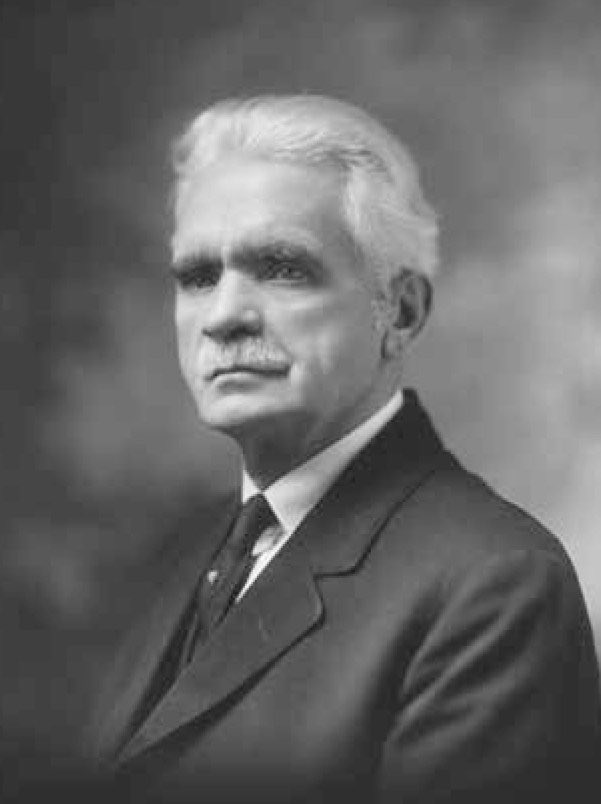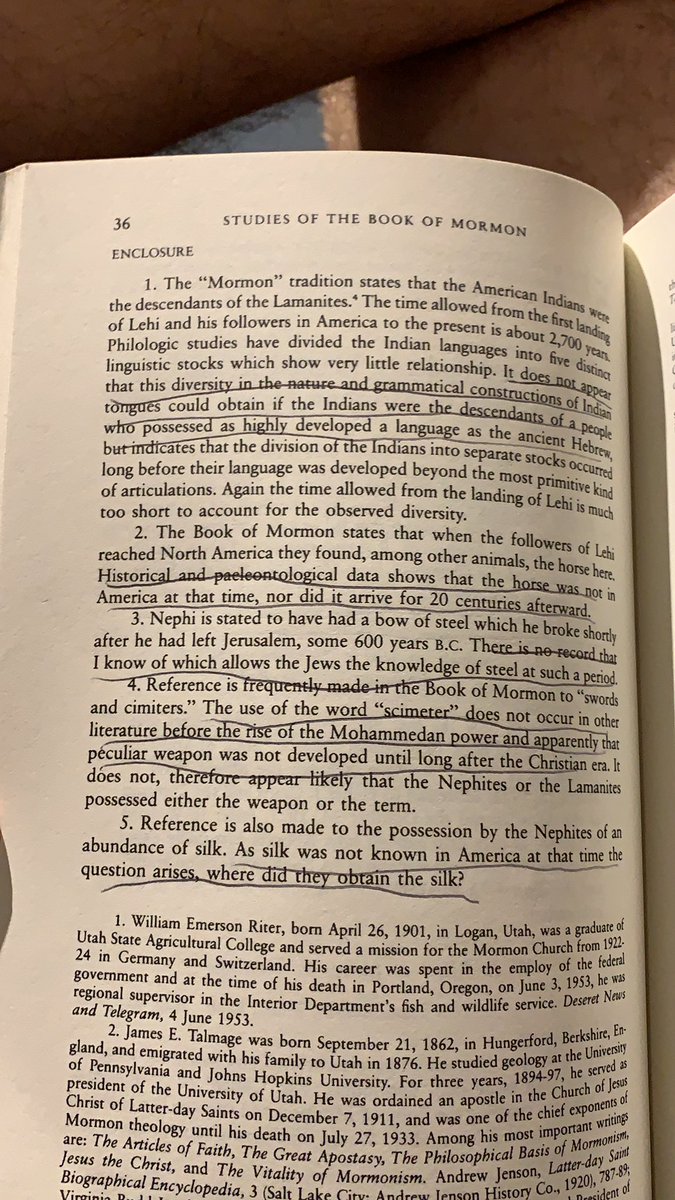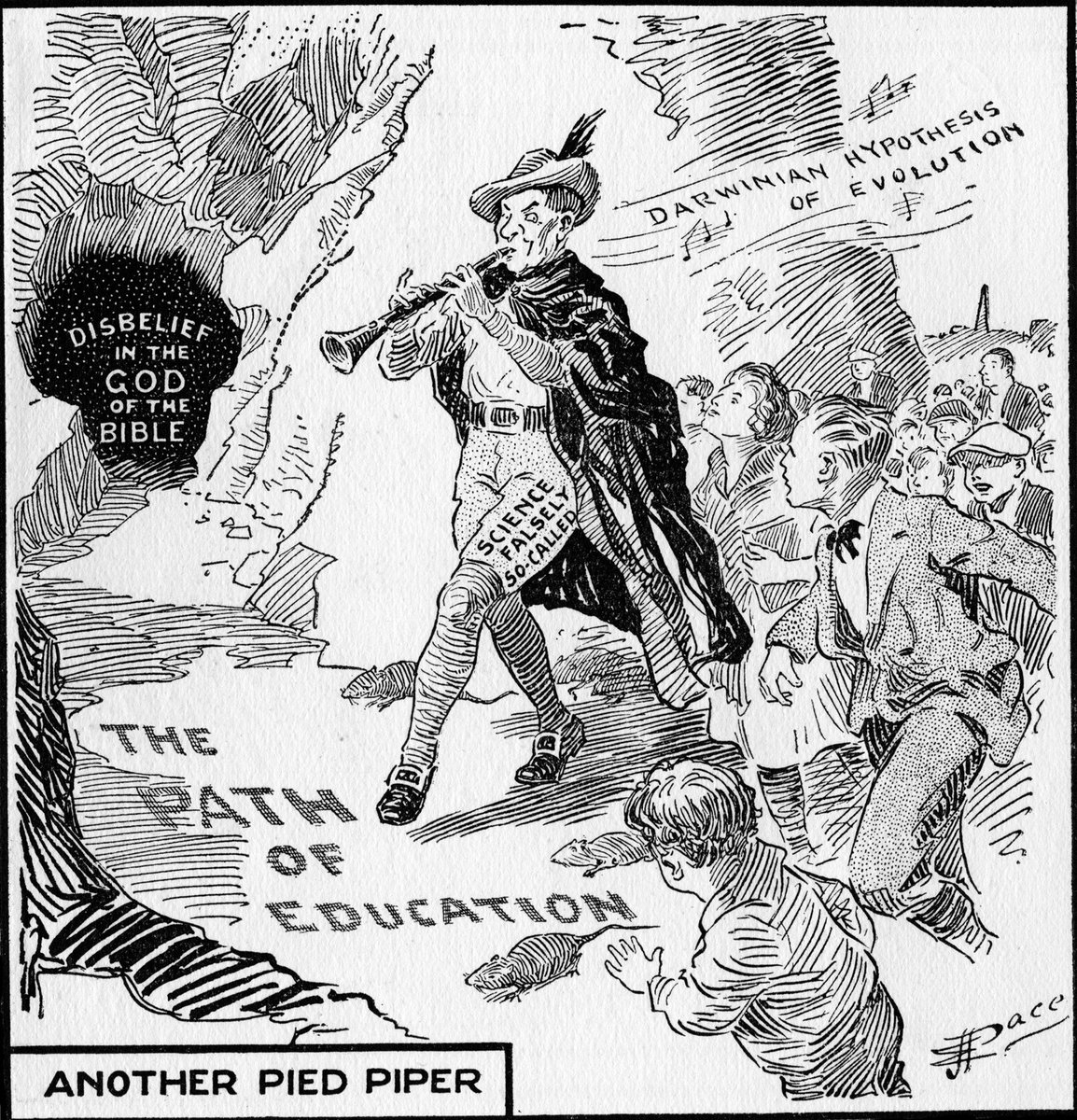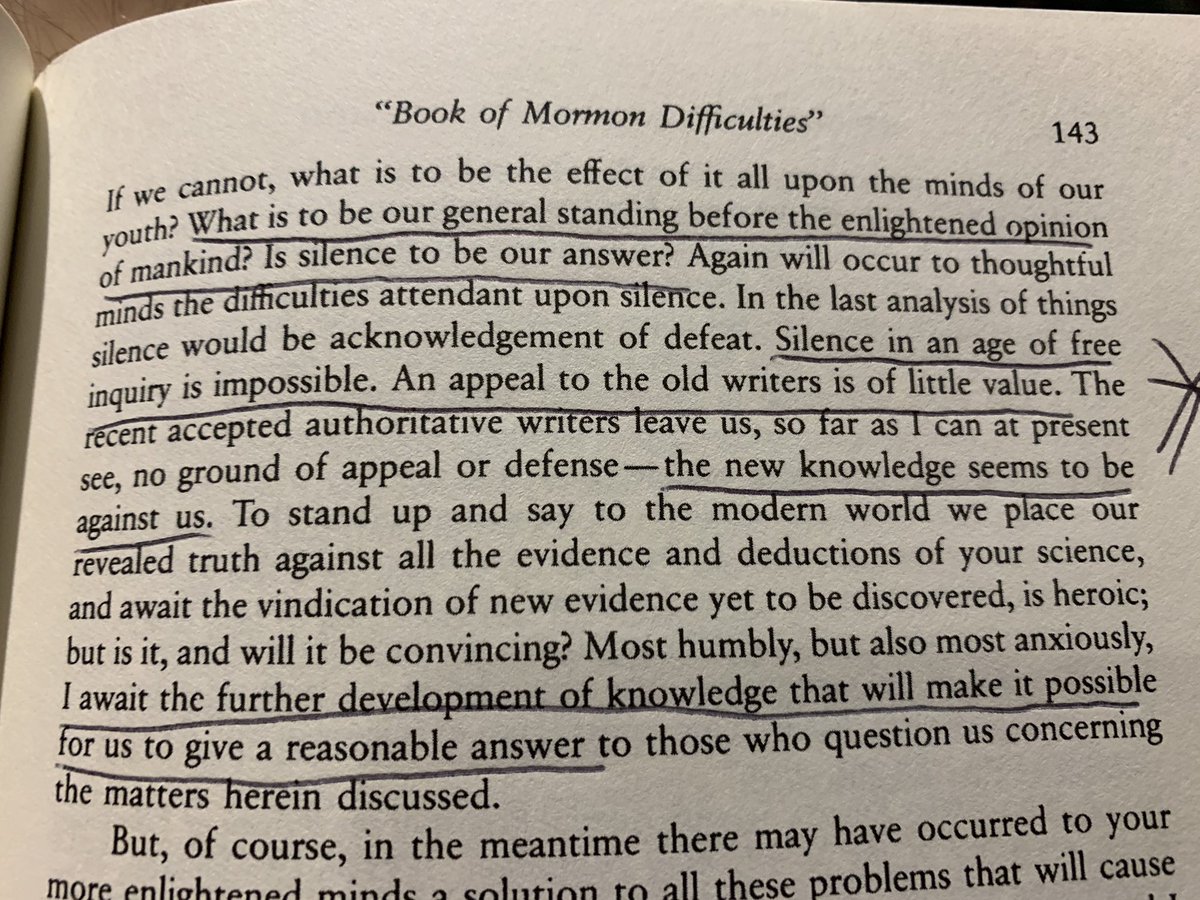There’s been a lot said about whether BH Roberts lost faith in the Book of Mormon. I think much of the debate is misplaced: what he was argued was not belief/unbelief, but the *nature* of belief. And the debate said a lot about modern Mormonism.
A brief #MormonAmerica thread./1
A brief #MormonAmerica thread./1
BH Roberts (1857-1933) did more than nearly anyone else to synthesize and codify Mormon thought during the faith’s transition period. As Sterling McMurrin once put it, he was neither a great historian or theologian, but he was the best historian & theologian Mormonism had. /2
Many of his documentary histories, monographs, and treaties became standard readings for the saints, and some of them remain so today. It’s a reach that very few can match.
But to his chagrin, two of his late works did not receive as much attention as he’d like. /3
But to his chagrin, two of his late works did not receive as much attention as he’d like. /3
In Winter 1921-22, he was tasked to respond to 5 questions regarding the Book of Mormon’s authenticity. He had previously written a lot of apologia for the sacred scripture, so this seemed logical. Yet the questions—especially about Indigenous languages—caught him off guard. /4
Eventually, he decided to write up his findings and questions in over 100 pages and present them to Church leaders. The results were disappointing: nobody could come up with answers that he found satisfactory. So he wrote up *another* hundred pages of further questioning. /5
He was then sent off to serve as the Eastern States Mission President, which allowed him to do further research into the Book of Mormon’s origins. Instead of being reassured, however, he discovered new problems, which resulted in yet another manuscript five years later. /6
After submitting all this material once again, he decided not to press it and instead worked on a new project: a theological synthesis titled “The Truth, The Way, The Life,” that he saw as his magnum opus. But when he submitted it, dogmatic apostles torpedoed its publication. /7
All of these manuscripts remained dormant for decades until their rediscovery a half-century later when descendants & colleagues worked hard to get them published. The BoM texts were published by U of Illinois, & republished by @signaturebooks. /8 https://www.amazon.com/Studies-Book-Mormon-B-Roberts/dp/1560850272/ref=nodl_">https://www.amazon.com/Studies-B...
The Truth, The Way, The Life appeared in a couple formats, one by @BYUStudies and another by @signaturebooks. Both have excellent supplementary material. /9 https://www.amazon.com/truth-way-life-elementary-masterwork/dp/1560850744/ref=nodl_">https://www.amazon.com/truth-way...
So now that you’re up to speed, why does this matter?
The fact that two of the projects most important to Roberts were not published in his lifetime reflect the cultural battles that engulfed his final years. But those battles are often misunderstood, for important reasons. /10
The fact that two of the projects most important to Roberts were not published in his lifetime reflect the cultural battles that engulfed his final years. But those battles are often misunderstood, for important reasons. /10
Much of the argument has centered on whether BH Roberts “lost faith” in the Book of Mormon; critics want him to be a neo-progressive who saw through Mormonism’s sham; apologists, conversely, argue he remained a full believer just trying to develop better defenses. /11
The truth—and this is one of those annoying historian hedges—is that both positions are right *and* wrong.
I think it’s clear Roberts still believed in the BoM’s sacred status, and likely even its historicity. But he came to reject traditional understandings for both. /12
I think it’s clear Roberts still believed in the BoM’s sacred status, and likely even its historicity. But he came to reject traditional understandings for both. /12
The 1920s was at the heart of America’s debates over “fundamentalist” and “modernist” beliefs. (I know these categories are increasingly problematic, but set that aside for a moment.) Religionists of all stripes were arguing over whether to adapt old beliefs for a new world. /13
The Scopes Monkey Trial, of course, is the classic 1920s case, where debates over Genesis and evolution were on the front pages across the nation. But the debate touched all denominations, including Mormonism, and sparked a similar crises. /14
In researching my current #MormonAmerica project, I’m struck by how broad and successful the “Modernist” movement was within Mormonism in the 1920s. Beyond Roberts’s work, BYU experienced truly progressive advances, and Amy Brown Lyman was transforming the Relief Society. /15
This is the context for Roberts’s two “lost” works: they were his attempts to align Mormonism’s core faiths with modern secular learning. Indeed, both his BoM & Truth/Way/Life are filled with block quote after block quote, literally inserting modernist thought into the faith. /16
This is also the context for their demise, as it was Roberts’s approach, more than his conclusions, that got him into trouble. He was willing to consider cultural influences on BoM language, as well as evolution’s role in human development. These are dangerous roads, though. /17
Orthodox apostles like Joseph Fielding Smith, and new First Presidency Counselor J Reuben Clark, defines faith—or the structure of faith—differently, and saw Roberts’s work as a threat. (There’s a lot more to this story—stay tuned!) /18
But what’s especially noteworthy is that the language used by dogmatic apostles to dismiss Roberts’s work—“unfaithful”—has been adopted by modern participants in the Roberts debate. Yet he was neither orthodox or a critic, but something else. /19
Roberts genuinely saw his work as “faithful,” but it wasn’t the same way JFS2 or JRC saw it, nor the way the term has been used in the century since then. Whereas modern Mormonism came to define it by certainty, structured on revelatory knowledge, Roberts looked elsewhere. /20
See how he closed his first BoM manuscript. He *wants* to find a faithful answer, but admits he doesn’t know it yet. He also rejects dismissing secular critiques. This is the pragmatist approach to knowledge, yet because it’s not either/or, it’s overlooked by both sides. /21
The modernist Mormonism of Roberts doesn’t fit traditional narratives cuz Roberts himself was seeking a new path, a road less traveled, a bridge untaken. And until we reframe LDS history in a way that incorporates these perspectives, we won’t understand its legacies, either. /fin
(Also:
1) I know I should stop saying it’s gonna be a “brief thread” when these things never turn out that way.
2) Yes I know I spent my holiday musing on Mormon historical narratives STOP JUDGING ME!)
1) I know I should stop saying it’s gonna be a “brief thread” when these things never turn out that way.
2) Yes I know I spent my holiday musing on Mormon historical narratives STOP JUDGING ME!)

 Read on Twitter
Read on Twitter





